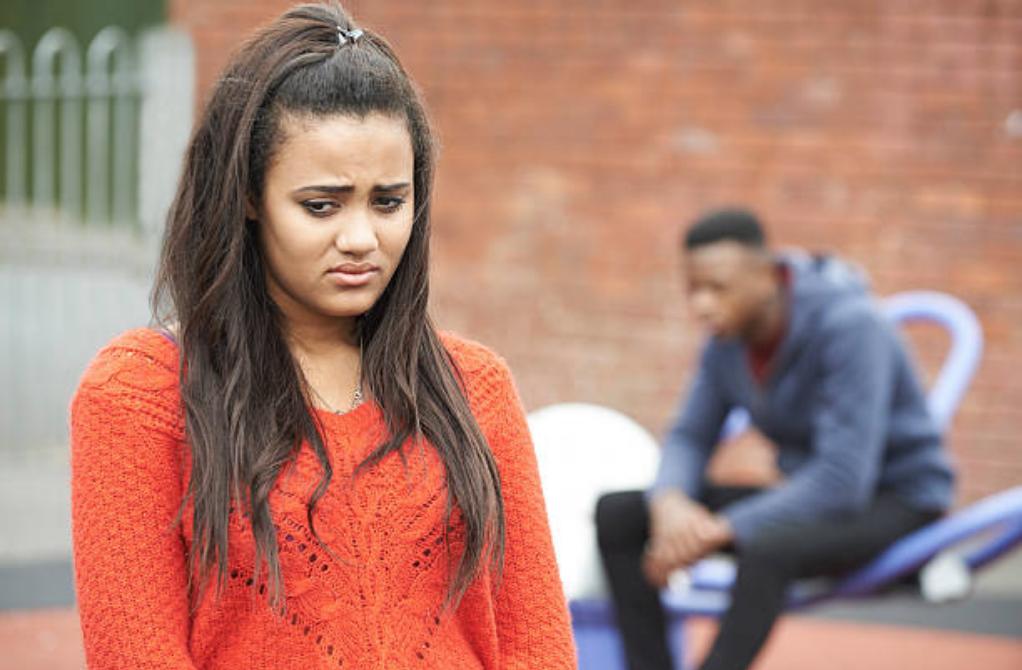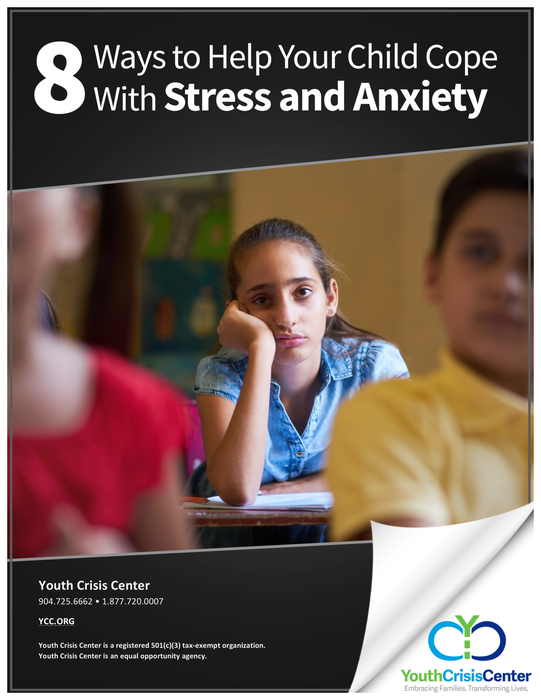February is National Teen Dating Violence Awareness and Prevention Month, which is a nationwide effort to raise awareness about abuse in teenage relationships and promote programs that educate young people on the importance of having a healthy relationship.
Hubbard House Teaches Teens the Importance of Healthy Relationships
Jacksonville’s Youth Crisis Center and Hubbard House first began their partnership in March 2018 to educate youth residing in YCC’s Residential Crisis Care program about the importance of healthy relationships. Hubbard House, serving Duval and Baker counties, is a full-service, certified, domestic violence center, responding to more than 91,000 hotline calls and providing shelter to more than 36,800 victims and their children in its 42-year history.
Every other month, a Hubbard House Violence Prevention Facilitator for Youth spends two consecutive days at YCC facilitating the Couplets program, which was created by the One Love Foundation. The facilitator provides a safe, non-judgmental place for youth to open up about their relationships and any issues they may be experiencing. Youth are encouraged to first identify times when they could have been the abuser in relationships, exhibiting manipulative or disrespectful behaviors to their partner, so they can recognize how their actions affect others. The Hubbard House Violence Prevention Facilitator then educates them on how to recognize the warning signs of abuse in relationships and provides information on resources available for help.
Prevention Eliminates Intervention
One in three teens will be in an abusive or unhealthy relationship at some point in their life, whether it is from physical, sexual, emotional or verbal abuse. In the case of an unhealthy relationship, Hubbard House stresses the importance of prevention, which will stop the violence before it even has the chance to occur. If prevention is unsuccessful, an intervention will be called to involve counseling, medical care or the police. Teens can prevent unhealthy bonds from forming by discussing their relationships, learning conflict resolution skills, becoming educated on the warning signs of abuse, and taking advantage of available resources, if needed.
5 Warning Signs That a Relationship Could Be Unhealthy
Potential abusers may be:
- Using manipulation to get what they want, convincing you to do something you may not want to do, or influencing your decisions.
- Forcing isolation by making you choose between them and your family and friends.
- Throwing in a guilt trip to make you feel like everything is your fault, or that you are solely responsible for their happiness.
- Lashing out because of jealousy, or sabotaging your work, school or other relationships because they want to be the most important part of your life.
- Making you feel like you have to walk on eggshells around them because of unpredictable overreactions, which could come in the form of violent behavior, belittlement or extreme mood swings.
Teaching Youth Early Is Key
Many of the youth at YCC present risk factors that could lead to a potentially abusive relationship: violence at home, aggressive or angry behavior, and poor problem-solving skills. The important thing to remember is that even if a teen presents risk factors that can lead to an unhealthy relationship, it doesn’t mean they are doomed to be abused or become an abuser. With the right tools and support, teens can develop healthy, happy relationships. “How kids handle friendships and early relationships is going to set the tone for how they handle more serious relationships down the road,” said Laura Gilligan, Health Educator at National Health Corps Florida Program, who serves at Hubbard House. “If they can learn non-violent approaches to conflict resolution in middle school or high school, they’ll carry that with them for the rest of their life.”
If you or someone you know is experiencing domestic abuse, the Hubbard House has highly trained advocates available 24/7 to talk with anyone experiencing domestic violence, seeking resources or information, or questioning unhealthy aspects of their relationship. Call (904) 354-3114 or go to their website to speak confidentially with an advocate today.
Are you dealing with a crisis or unmanageable youth? The Youth Crisis Center’s Residential Crisis Care program provides short-term residential services and therapy for youth ages 10-17. Our residential therapists work with youth and their families to address the immediate crisis and help provide long-term solutions to handle future concerns once the youth return home. Click to fill out the Residential Crisis Care form on our website and a therapist will contact you, or call our crisis hotline at (904) 725-6662 to speak with someone immediately. Click more to learn about 8 ways to help your child cope with stress and anxiety.


